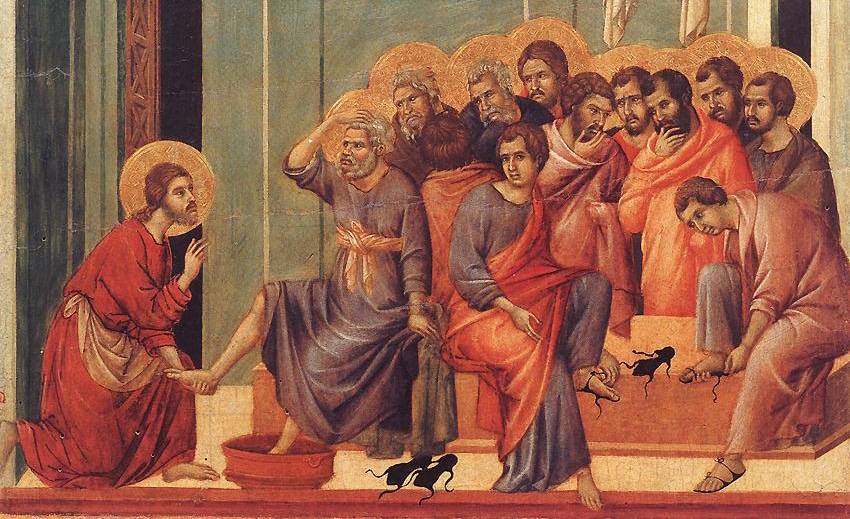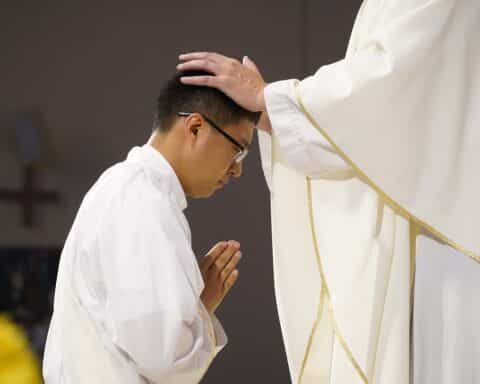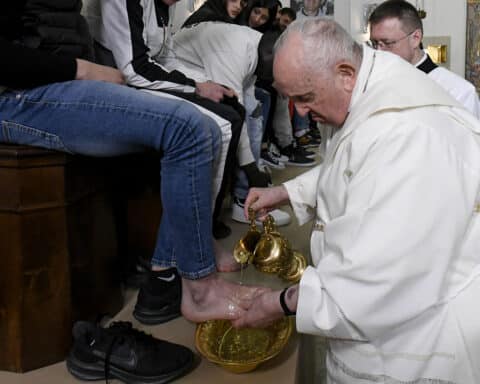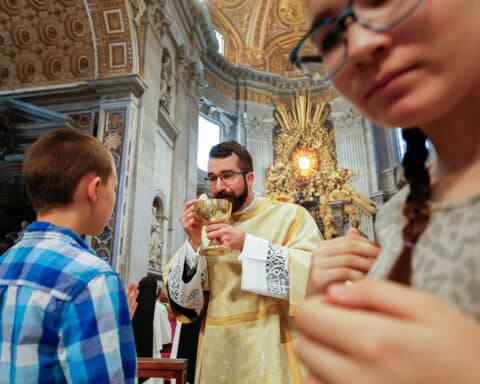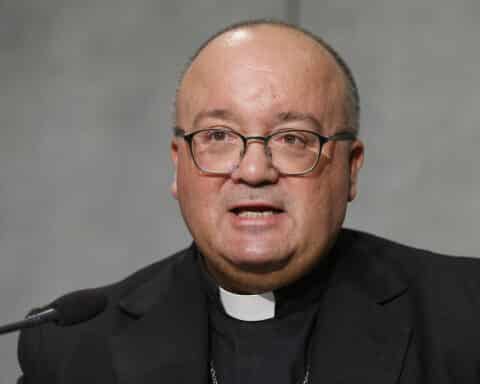On International Women’s Day, Whoopi Goldberg took a shot at Pope Francis on TV’s “The View.” The pope concluded his Wednesday audience by praising women. He said, “I thank them for their commitment to building a more humane society, through their ability to grasp reality with a creative eye and a tender heart.” Calling for a round of applause and offering a special blessing for women, the Holy Father said, “They deserve it!”
Goldberg, however, objected. “The pope recently said that equal opportunities for women are the key to a better world,” the talk show host said. “We already know that, but we’re glad he’s finally figured it out, and now maybe there will be female priests,” Goldberg concluded.
The question of admission of women to holy orders isn’t really a question at all. First and foremost, the Church cannot change the sacraments, as it has received them from Christ. Believers can only hand on what Our Lord did and taught. The sacraments are sacred mysteries into which Christ invites us to enter, not rituals that we have created and can therefore recreate in our own image. The challenge for Catholics is not to adapt what the Lord has done to conform to the world’s politics or ideologies but to explore and contemplate so as to receive the fullest meaning from Christ’s deeds and teaching.
Second, equality doesn’t mean interchangeability. It is clear from the Gospels that Jesus taught that women and men alike, made in the image and likeness of God, have a fundamental, inviolable equality and an inherent, inalienable dignity. But both the teaching of Jesus and the reality of his life reveal that this fundamental equality is expressed in complementary — rather than identical — ways. The Virgin Mary, Christ’s greatest disciple, was not a priest. The 12 disciples, who were priests, are largely absent from the story of the Passion. Women, however, wept for Christ as he carried his cross, laid his body to rest in the tomb and came early on the day of the Resurrection to visit the tomb.
That is the foundation: Christ inaugurated the sacraments, and we cannot veer from the essence of what he has revealed to us. But that does not mean there is nothing more to say. Theologians have reflected, for example, that the priest stands in persona Christi, meaning that he represents Christ, particularly in his humanity. And because Christ was a man, it is fitting that our priests would likewise be men. (Notably, Israel differed from the other nations of the ancient world who had priestesses, because in Israel only men were priests.)
Goldberg’s challenge to the nature of the priesthood isn’t the only question to have been raised lately concerning the Church’s understanding of holy orders. In a recent interview, Pope Francis said, “Celibacy in the Western Church is a temporary prescription: I do not know if it is settled in one way or another, but it is temporary in this sense.” Pointing out that the Church already has many married priests in the Eastern rites, the pope noted that the discipline of celibacy can be changed, whereas ordination is forever.
In fact, married priests were common in the Latin rite (Western Church) until the First Lateran Council in 1134. The pope’s comment, therefore, underscores the historical fact that celibacy, adopted in imitation of Jesus, is a discipline that has had, still has, and may very well have in the future varying practice in the Church. It is unlikely that Pope Francis would change the discipline, however, since he declined to do so following the Amazon synod in 2020.
Jonathan Morris, a Fox News commentator and former Catholic priest who has married since leaving the priesthood, took the opportunity to say, “We need good leaders, and I think there would be more good leaders if married men were allowed to be priests.” But Morris’ argument, like Goldberg’s, is a red herring. Just as the extraordinary dignity of women and their call to be leaders in the Church does not depend in any way on the Sacrament of Holy Orders, so, too, the tension between the number of priestly vocations and the discipline of celibacy. The challenge of recruiting worthy men for the priesthood is just as present in the Eastern Churches as it is in the West.
The world can’t resist talking about the priesthood. That oscillating fascination and opposition may very well be further proof of the priesthood’s divine inauguration. This Holy Thursday, we pray that the priests ordained to service in the Church may embrace the humility of Jesus, so boldly exemplified in the ritual Washing of the Feet, and be further conformed to the way of the Gospel.
Our Sunday Visitor Editorial Board: Father Patrick Briscoe, Gretchen R. Crowe, Scott P. Richert, Scott Warden, York Young

